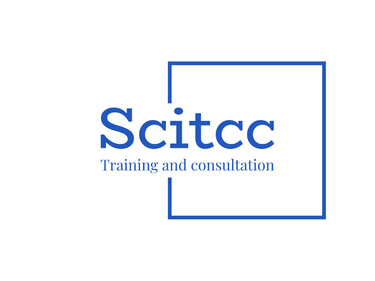
Effective Self-Management Skills
Effective Self-Management Skills
$5500.00
Effective Self-Management Skills: 5-Day Personal Mastery Course
Course Overview
This transformative 5-day program empowers professionals across Saudi Arabia, Oman, UAE, Kuwait, Bahrain, and Qatar to master self-management skills essential for personal excellence and career advancement. Designed for the dynamic GCC workplace, this course combines proven productivity techniques with strategies tailored to the unique challenges and opportunities of Middle Eastern professional environments.
Target Audience: Professionals at all levels, entrepreneurs, executives, team leaders, students, and anyone seeking to enhance personal effectiveness, productivity, and work-life balance across KSA, Oman, and GCC countries.
Day 1: Self-Awareness and Goal Setting Mastery
Morning Session: Foundation of Self-Management
Understanding self-management in the 21st-century GCC workplace
Self-awareness: identifying strengths, weaknesses, values, and beliefs
Personality assessments: Myers-Briggs, DISC, and emotional intelligence profiling
Understanding your personal work style and preferences
Cultural identity and professional excellence in Gulf societies
The self-management success formula for Middle Eastern professionals
Afternoon Session: Strategic Goal Setting
Vision creation aligned with Saudi Vision 2030 and regional initiatives
SMART goals framework for personal and professional objectives
Long-term planning: 1-year, 5-year, and 10-year goal mapping
Breaking down ambitious goals into actionable milestones
Balancing career aspirations with family and cultural commitments
Creating personal mission and vision statements
Goal tracking systems and accountability mechanisms
Workshop Activity: Design your comprehensive personal development roadmap with quarterly milestones and success metrics
Day 2: Time Management and Productivity Excellence
Morning Session: Mastering Your Time
Time management myths and realities in GCC business culture
Eisenhower Matrix: prioritizing urgent vs. important tasks
The 80/20 Pareto Principle for maximum productivity
Time blocking and calendar management techniques
Managing prayer times, family obligations, and professional commitments
Overcoming procrastination: causes and proven solutions
Digital minimalism and managing technology distractions
Afternoon Session: Peak Productivity Systems
Getting Things Done (GTD) methodology for Arab professionals
The Pomodoro Technique and focused work sessions
Energy management: aligning tasks with personal energy cycles
Morning and evening routines for consistent success
Batch processing and task grouping strategies
Delegation principles: when and how to let go
Creating productivity systems that work in Riyadh, Muscat, and beyond
Practical Exercise: Conduct personal time audit and redesign your weekly schedule for optimal productivity and balance
Day 3: Stress Management and Emotional Intelligence
Morning Session: Stress Mastery in Modern GCC
Understanding stress: causes, symptoms, and impact on performance
Stress management techniques for high-pressure Gulf workplaces
Mindfulness and meditation practices compatible with Islamic values
Physical wellness: exercise, nutrition, and sleep optimization
Work-life integration in demanding Saudi and Omani environments
Building resilience and mental toughness
Recognizing and preventing burnout
Afternoon Session: Emotional Intelligence Development
The four pillars: self-awareness, self-management, social awareness, relationship management
Managing emotions in professional and personal contexts
Developing empathy and cultural sensitivity in multicultural GCC teams
Assertive communication without aggression
Handling criticism and feedback constructively
Emotional regulation techniques for challenging situations
Building psychological safety and well-being
Interactive Session: Emotional intelligence assessment and personalized development plan for managing workplace and personal relationships
Day 4: Communication and Relationship Management
Morning Session: Personal Branding and Communication
Building your professional brand in the Gulf job market
Effective communication in bilingual environments (Arabic-English)
Active listening and powerful questioning techniques
Non-verbal communication and body language awareness
Digital communication etiquette for emails, WhatsApp, and social media
Networking strategies for career advancement in KSA and GCC
Public speaking and presentation confidence
Afternoon Session: Relationship Excellence
Building and maintaining professional relationships across hierarchies
Conflict management and difficult conversation strategies
Setting healthy boundaries with colleagues and supervisors
Relationship building in traditional and modern Gulf workplaces
Managing upward: working effectively with managers and executives
Peer relationships: collaboration without competition
Building authentic connections while respecting cultural norms
Role-Play Exercise: Practice challenging communication scenarios common in Saudi Arabian, Omani, and Emirati professional settings
Day 5: Decision-Making and Continuous Improvement
Morning Session: Strategic Decision-Making
Personal decision-making frameworks and models
Overcoming decision paralysis and analysis paralysis
Intuition vs. logic: when to use each in Gulf contexts
Financial decision-making and personal wealth management
Career decisions: job changes, promotions, and entrepreneurship
Risk assessment and calculated risk-taking
Learning from mistakes and failed decisions
Values-based decision-making aligned with cultural principles
Afternoon Session: Growth Mindset and Personal Excellence
Fixed vs. growth mindset: transforming limiting beliefs
Continuous learning strategies for lifelong development
Building new habits: the science of behavior change
Accountability systems and finding accountability partners
Measuring personal growth and celebrating wins
Adapting to change in rapidly evolving GCC economies
Creating your personal development plan for the next 12 months
Capstone Project: Personal Mastery Plan
Participants present comprehensive self-management strategies
Integration of time management, stress management, and communication skills
90-day action plan with specific commitments
Accountability partnership formation
Resource toolkit for ongoing development
Final Deliverable: Complete personal excellence blueprint with implementation timeline and success indicators
Course Benefits
✓ Immediate Impact: Apply techniques starting day one for instant productivity gains
✓ Cultural Alignment: Strategies designed for GCC professional and cultural contexts
✓ Holistic Development: Address physical, mental, emotional, and professional dimensions
✓ Career Advancement: Stand out in competitive Saudi, Omani, and Gulf job markets
✓ Work-Life Harmony: Balance professional ambitions with family and cultural values
✓ Professional Certification: Recognized certificate of achievement
✓ Peer Network: Connect with like-minded professionals across the Middle East
✓ Bilingual Materials: Resources available in English and Arabic
✓ Lifetime Access: Digital toolkit and templates for ongoing use
Learning Methodology
Self-Assessment Tools: 30% personal discovery through validated instruments
Interactive Workshops: 25% hands-on exercises and skill practice
Group Discussions: 20% peer learning and experience sharing
Expert Coaching: 15% personalized feedback from facilitators
Action Planning: 10% creating implementation strategies
Why Self-Management Skills Are Critical in the GCC
The Gulf region’s rapid transformation demands professionals who can manage increasing complexity, ambiguity, and opportunity. From Saudi Arabia’s megaprojects to Oman’s tourism expansion and UAE’s innovation economy, success belongs to those who master themselves first.
Studies show that professionals with strong self-management skills are 50% more productive, experience 40% less stress, and achieve career milestones 3-5 years faster than peers. As GCC workplaces become more competitive and demanding, your ability to manage time, emotions, relationships, and personal growth becomes your ultimate competitive advantage.
Whether navigating Riyadh’s corporate landscape, building businesses in Muscat, or climbing career ladders in Dubai, Abu Dhabi, Doha, Kuwait City, or Manama, self-management is the foundation of sustainable success.
Transform Your Life and Career
Self-management is not about perfection—it’s about progress. This course provides practical tools, proven frameworks, and culturally relevant strategies to help you take control of your time, energy, emotions, and future. Join thousands of GCC professionals who have transformed their effectiveness through structured self-management training.
Enroll today to unlock your full potential and create the balanced, successful life you deserve in the dynamic Gulf region.
Keywords: self-management training Saudi Arabia, personal development KSA, productivity course Oman, time management training GCC, emotional intelligence UAE, stress management Middle East, goal setting workshop Gulf, personal effectiveness Riyadh, professional development Qatar, career skills Bahrain, self-improvement Dubai, leadership skills Kuwait


